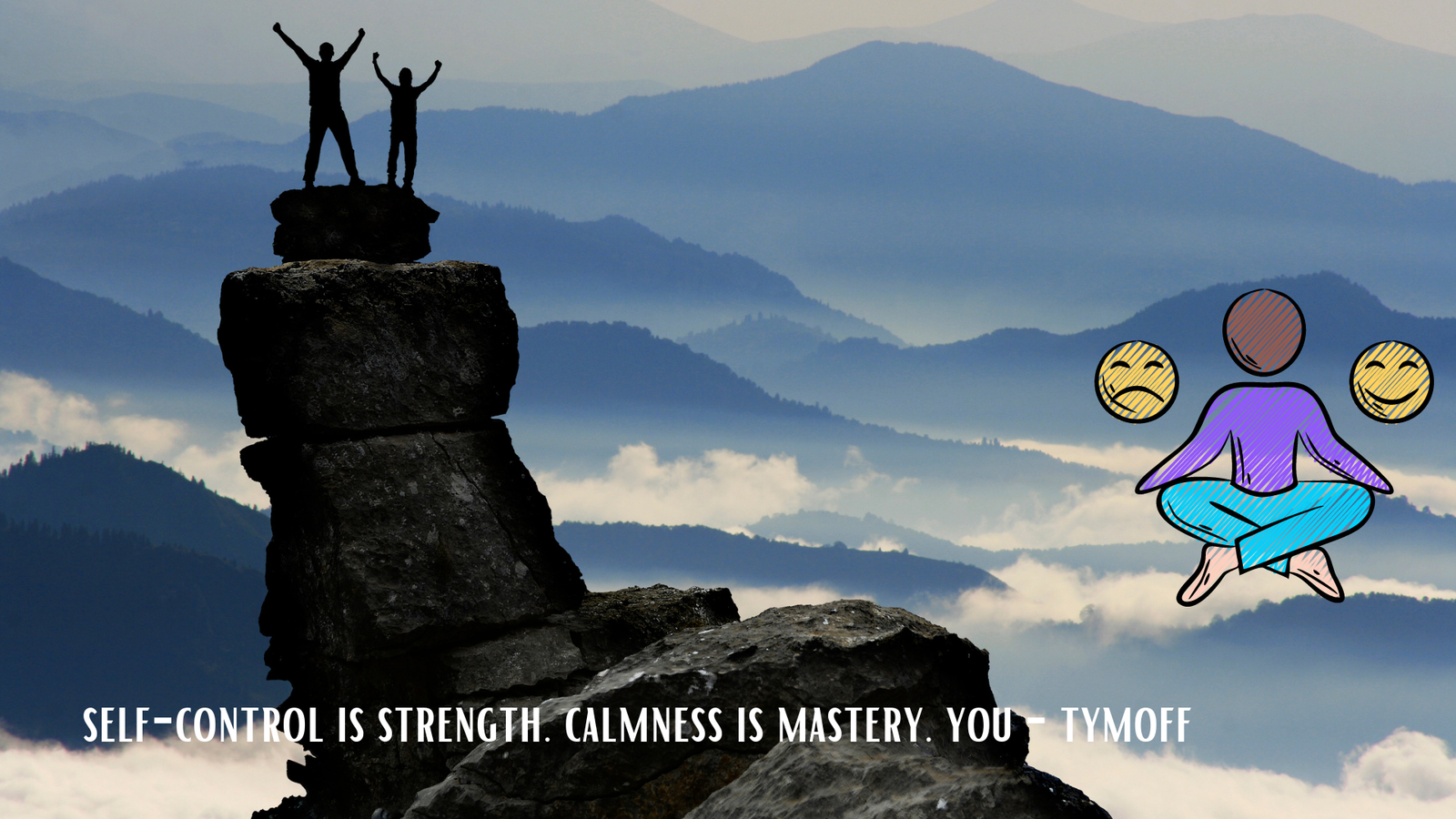The phrase “Self-control is strength. Calmness is mastery. You – Tymoff” holds a profound message about the power of self-discipline and emotional stability in navigating life’s challenges. It emphasizes that self-control and calmness are not just virtues to admire, but essential tools for achieving personal success, peace, and resilience.
Self-Control: A Pillar of Inner Strength
At its core, self-control represents the ability to regulate one’s emotions, impulses, and reactions. This strength is crucial for achieving long-term goals, resisting temptations, and maintaining a steady course even during turbulent times. People with self-control are less likely to react impulsively to situations that trigger stress or anger, which allows them to make decisions with a clearer mind and more aligned with their objectives.
Self-control is not about repressing emotions but rather about understanding and managing them deliberately. When you practice self-control, you cultivate inner strength, making it easier to handle stress and pressure without falling apart. For instance, research suggests that individuals who practice mindfulness and meditation exhibit higher levels of self-regulation and emotional resilience in both professional and personal settings.
Calmness: The Mastery of Emotions
Calmness is the ability to maintain inner peace, especially during moments of chaos. While self-control provides the strength to hold steady, calmness is the mastery that allows for clear decision-making without emotional interference. It is the state where you can think rationally, respond rather than react, and handle situations with patience and clarity.
Mastering calmness means being able to stay centered in the face of external pressures. A person who remains calm can navigate difficult circumstances with a clear mind, much like a ship captain steering through a storm without panic. This inner tranquility is not only beneficial for making rational decisions but also for maintaining emotional health. Studies show that calm individuals experience less stress, anxiety, and better overall well-being.
The Synergy of Self-Control and Calmness
Self-control and calmness work together as a powerful duo. While self-control helps you manage your impulses, calmness allows you to maintain focus and clarity. When combined, these qualities enable you to handle life’s ups and downs with grace and composure. This balance is crucial for both personal growth and professional success.
For example, consider a high-pressure situation at work. A person with self-control might avoid snapping at colleagues, but someone who combines self-control with calmness can also engage in constructive conversations and find solutions without letting stress dictate their actions.
Must Read: I Fear No One, But Respect Everyone – Tymoff
Practical Steps to Develop Self-Control and Calmness
- Mindfulness and Meditation: Regular mindfulness practice helps you become more aware of your thoughts and emotions. By focusing on the present moment, you can learn to manage impulses and maintain calm in stressful situations.
- Deep Breathing: When feeling overwhelmed, deep breathing exercises can help slow down your heart rate and calm your nervous system. This simple practice allows you to regain control over your emotions before reacting impulsively.
- Positive Self-Talk: Shifting your internal dialogue can improve your ability to stay calm and in control. Instead of negative thoughts like “I can’t handle this,” replace them with affirmations like “I am calm and capable”.
- Removing Triggers: Identifying and avoiding situations that trigger emotional responses can be effective in cultivating calmness. Whether it’s taking a break or walking away from stressful situations, knowing your limits is key to maintaining composure.
Impact on Relationships and Professional Life
Cultivating self-control and calmness doesn’t just benefit the individual; it significantly impacts how you interact with others. In relationships, maintaining calmness helps reduce conflicts and fosters more empathetic communication. Self-control ensures that reactions are measured, and you can address issues constructively rather than emotionally. In a professional context, these traits lead to better decision-making, higher productivity, and greater respect from colleagues
Conclusion: The Tymoff Philosophy
The wisdom embedded in Tymoff’s quote—“Self-control is strength. Calmness is mastery”—reminds us that true personal power lies within our ability to regulate ourselves. By mastering these traits, we unlock the potential for a more peaceful, balanced, and fulfilling life. As Tymoff suggests, you are the focus of this philosophy, and the journey to self-mastery begins with the simple yet profound practice of controlling your impulses and maintaining calmness in all situations.

